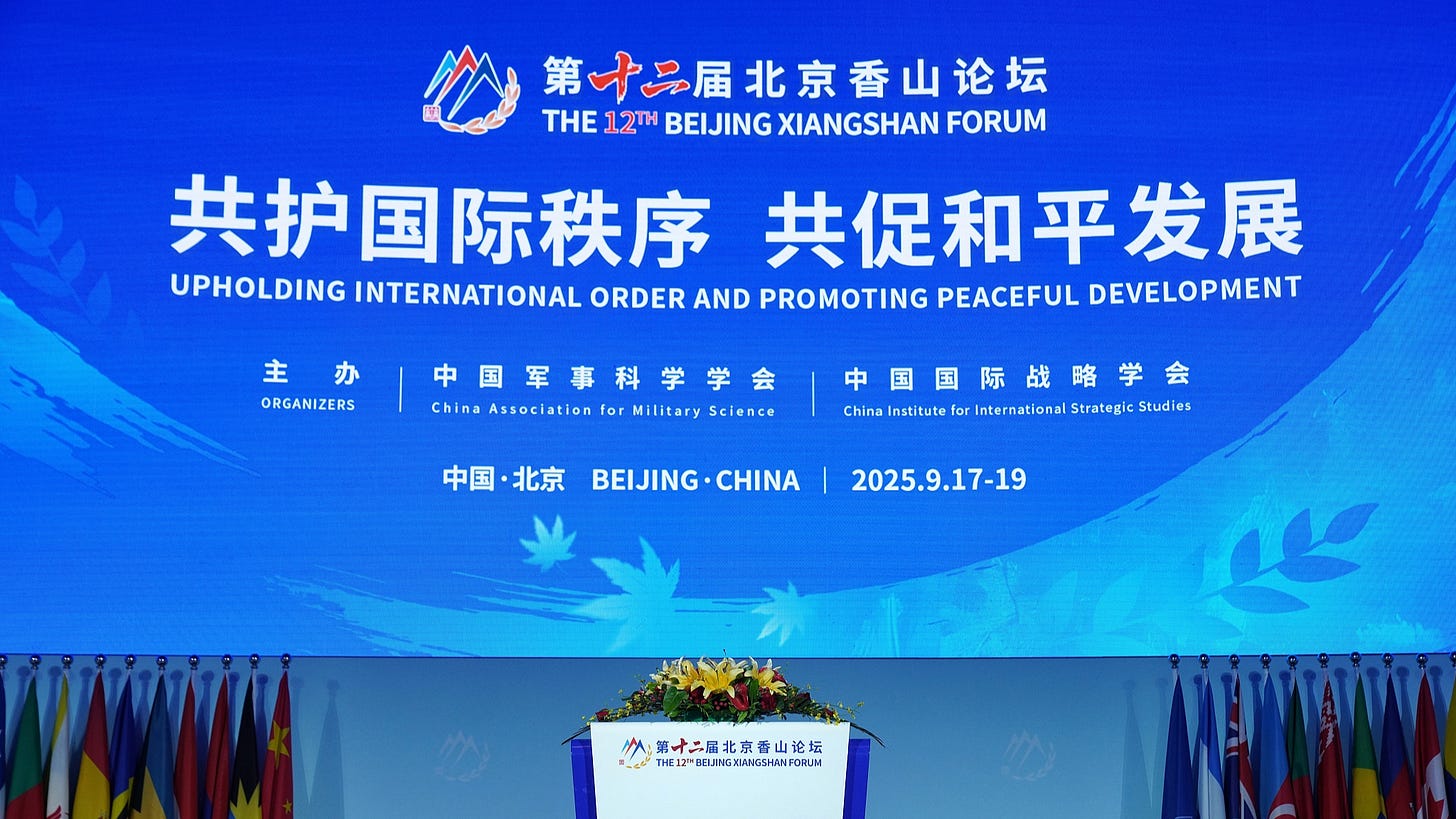US and Chinese Delegates Clash at the Xiangshan Forum
An everything, everywhere, all at once moment for nationalist chauvinism.
Most years, I let the Xiangshan Forum pass without commenting on it.
If you haven’t heard of the Xiangshan Forum, it’s a Track 1.5 (quasi-official) meeting that China convenes to talk about defense and security issues. Representatives from 100 countries were in attendance this year, making it the largest multilateral defense forum in the world.
My co-ho…


